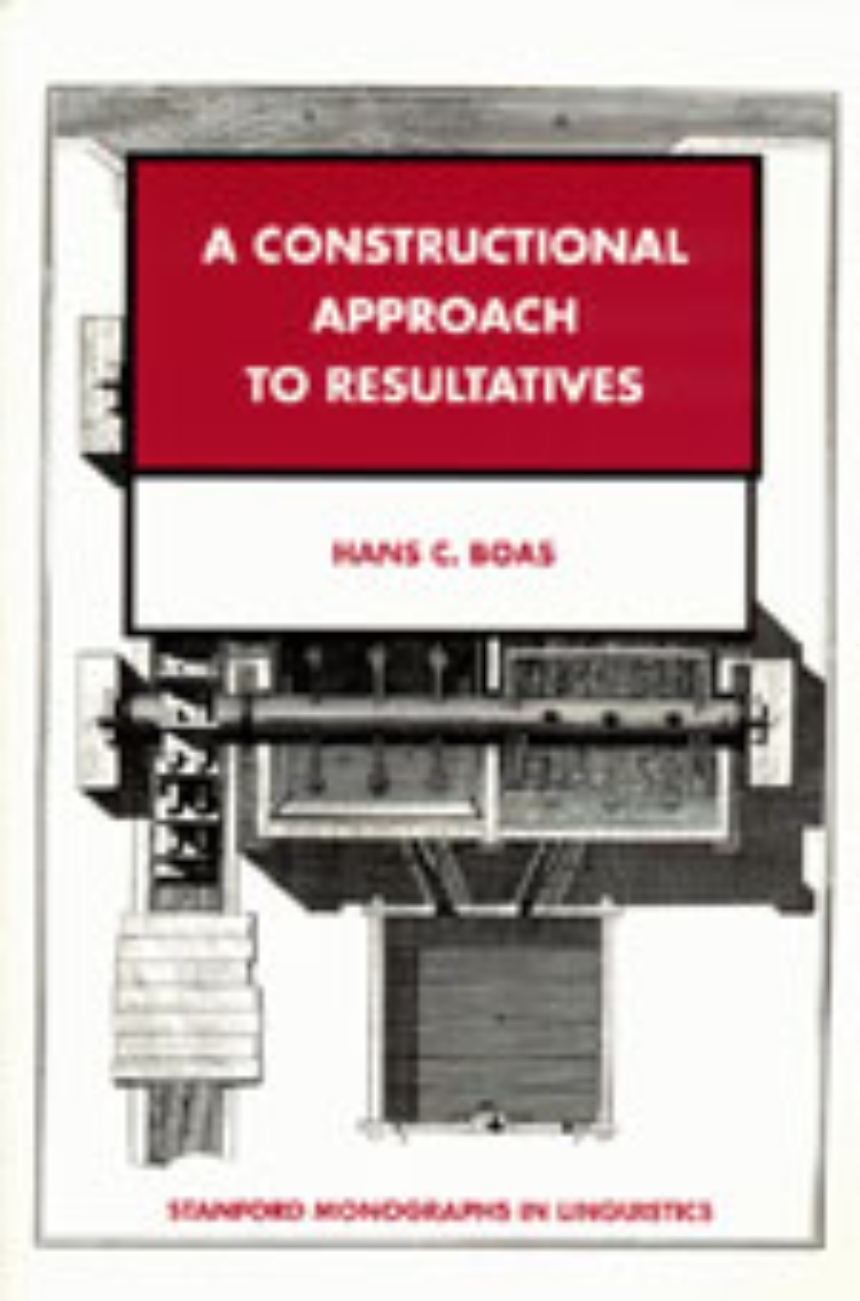Center for the Study of Language and Information
A Constructional Approach to Resultatives
9781575864082
9781575869872
Distributed for Center for the Study of Language and Information
A Constructional Approach to Resultatives
Providing a unified solution within the frameworks of Construction Grammar and Frame Semantics, Hans Boas develops an account of resultative constructions in English by grouping them in two classes: conventionalized and non-conventionalized. The usage-based model used here proposes that each particular sense of a verb constitutes a conventionalized mini-construction, which is crucial information for the licensing of arguments. In contrast, verbs in non-conventionalized resultative constructions can acquire a novel meaning and thereby a new syntactic frame. English and German resultatives are compared to illustrate the distinct lexical polysemy networks of English and German verbs.
6 x 9 | © 2003
Stanford Monographs in Linguistics
Language and Linguistics: General Language and Linguistics
Table of Contents
Acknowledgments
1. Introduction
2. Syntactic Approaches to Resultatives
3. The Role of Event Structure and Lexical Semantics
4. The Role of Argument Structure Constructions
5. Towards a Usage-Based Analysis of Resultatives
6. Event Based Frame Semantics
7. Lexical Licensing of Resultatives
8. A Contrastive Look at Resultatives in English and German
9. Conclusions
Appendix A: Resultative Phrases
Appendix B: Verbs
Appendix C: English and German Resultatives
References
Name Index
Subject Index
1. Introduction
2. Syntactic Approaches to Resultatives
3. The Role of Event Structure and Lexical Semantics
4. The Role of Argument Structure Constructions
5. Towards a Usage-Based Analysis of Resultatives
6. Event Based Frame Semantics
7. Lexical Licensing of Resultatives
8. A Contrastive Look at Resultatives in English and German
9. Conclusions
Appendix A: Resultative Phrases
Appendix B: Verbs
Appendix C: English and German Resultatives
References
Name Index
Subject Index

